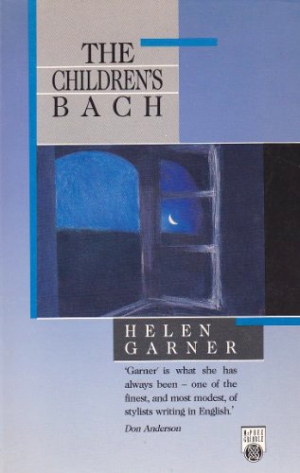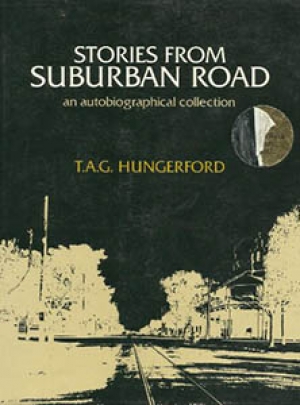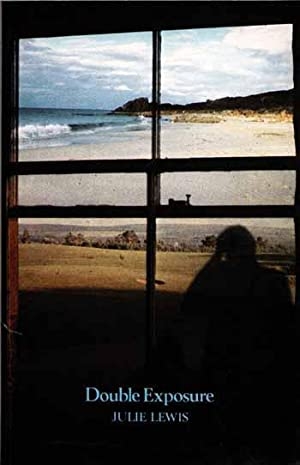Australian Fiction
Kerryn Goldsworthy reviews 'The Children’s Bach' by Helen Garner
The characters in Helen Garner’s new novella The Children’s Bach make up the kind of social molecule in at least one of which all of us feature as an atom.
... (read more)Andrew Sant reviews 'Stories from Suburban Road: An autobiographical collection' by T.A.G. Hungerford
T.A.G. Hungerford’s new book Stories from Suburban Road is sub-titled ‘an autobiographical collection’ and comes complete with an appendix of photographs in the style of a family album with captions such as ‘Mick and me, 1922’, ‘Me, aged 16, and Phyllis Kingsbury, Scarborough, 1931’, and ‘Mum and Mrs Francis Victoria Wood, Como Beach, 1930’. Also, throughout the collection each story, sixteen in all, is accompanied by a photograph of the period of the author’s childhood and adolescence between the wars. The impression this provides is that the reader is invited to participate in Hungerford’s nostalgia for his past which consequently may be an inaccessibly private world – more reminiscence than substance. This impression proves to be quite incorrect. The photographs are moments frozen in time, enclosed in a period before this reader was born and the stories offer insight into them. They mutually contribute to the impression created, generally, of a world of innocence and delight. The happy and robust youth in the photographs looks contentedly into the camera from an ordered, acceptable world. They also perhaps complement the selectivity of the author’s imagination.
... (read more)In an authorial note Fay Zwicky describes her collection of stories as thematic rather than chronological.
They are all concerned more or less ironically, with the growth of a writer’s consciousness which may help to account for the varying degrees of stylistic density and the shifts in personae.
The first seven stories, the Helen Freeman sequence, offer a retrospective view of Helen’s struggle to establish a female identity in a world dominated by men and by masculine edicts and rituals. Taking a hint from the introductory note, these stories reflect, in essence, the stages in the author’s personal development from her youthful recollections of her family during and after the Second World War to her marriage and separation. It is arguable whether these stories should be treated as the discontinuous narrative of one life, though they can be read that way. They are not, however, an autobiography.
... (read more)This is not a reissue of a novel almost twenty years old, nor is it quite a new novel: it is a heavily revised version of an early work by the author of the prize-winning novel Year of Living Dangerously. Across the Sea Wall was written before C.J. Koch was thirty. In a prefatory note to the new version he writes: ‘If such novels of youth are worth republishing, they are worth revising ... The cuts and alterations are not fundamental, but they are extensive.’ He concludes with the hope ‘that the earlier version of this work will be consigned to oblivion, and that anyone referring to the book, or quoting from it, will go to no other version but this one’.
... (read more)This is a very fine first novel by Jean Bedford. Her first publication was the collection of short stories, Country Girl Again, published by Sisters Press in 1978. Sister Kate justly deserves to be one of the two bestsellers in Melbourne.
The novel traces the life of Kate Kelly, sister of the famous Ned, and opens when Kate is twelve and Edward just returned from a three-year stint in Pentridge. He is shocked and outraged to learn that his brother, Jim, a mere sixteen-year-old, has been arrested for horse stealing and sent to Pentridge also. Ned is nineteen. Kate remarks:
... (read more)This collection of stories put me off from the first page. In the opening paragraph there is ‘an exuberant kelpie bounding’. The second paragraph outdoes that, presenting seagulls as ‘wheeling and screaming’, in search of ‘a reeking fish head’. We already know that ‘the life was lonely, but it was peaceful’. Clichés enlivened by irony or just some simple surprise of context proves useful tools in the hands of a good writer. But Julie Lewis, on the evidence of Double Exposure, is not a good writer and cliches are offered up to us without any apology. Much of the problem seems to be that she overdoes adjectives and adverbs:
... (read more)She felt for a pulse. Feeble. She gingerly touched the stubbly cheek It was bruised and there was a gash on the forehead. His clothes, seaman’s wear, were soaked. She studied the unconscious form. He was fairly young, about thirty, she thought. Looked a battler. She smiled ruefully and gently lifted the lock of hair that had fallen across his brow. It was matted with blood. (‘Flotsam’, p 2)
Children’s Book Week is traditionally a time to take an overall view of the last year’s output of children’s books. Such an overall view is necessarily superficial but it can be interesting to note the appearance of new authors and illustrators, new themes, or different treatment of old themes. This article will look at the picture books and fiction of the last twelve months.
... (read more)When the ABC asked me to adapt Roger McDonald’s novel 1915 into a major seven-part serial, I declined. Ray Alchin, producer and head of the ABC’s film studio in Sydney, looked at me with disbelief and asked me to read it again. So I read it again, twice, and thanked him for having the good sense to see its possibilities, and gratefully accepted.
... (read more)This novel raises more interesting questions about its author than about its characters and action.
... (read more)Alan Gould reviews 'Homesickness' by Murray Bail and 'Monkeys in the Dark' by Blanche d’Alpuget
I found Murray Bail’s novel Homesickness a work of brilliant and resonant artistry, which despite many unlikely incidents, succeeds in being thoroughly credible in all its parts. It is also a desolating book, a comedy, but a very black one.
... (read more)








